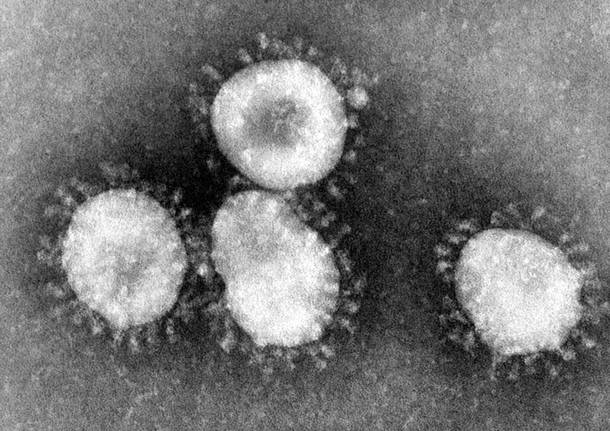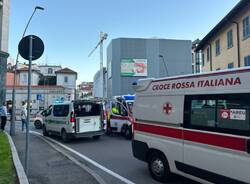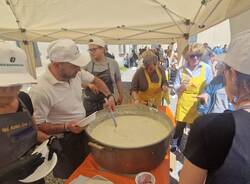Chinese virus: what is it and what are the warnings for traveling and international trade
The World Health Organization has issued a document explaining what the virus tis hat created the new health alert and the precautions for travellers

Coronaviruses (CoV) are a large family of viruses that cause diseases ranging from the common cold to more serious diseases such as Middle Eastern Respiratory Syndrome (MERS-CoV) and Severe Acute Respiratory Syndrome (SARS-CoV). The new coronavirus (nCoV) is a new strain that has never been identified in humans before.
Coronaviruses are zoonotic, i.e. they are transmitted from animals to humans. Detailed investigations revealed that SARS-CoV was transmitted from civets to humans and MERS-CoV from dromedaries to humans. Numerous known coronaviruses circulate among animals that have not yet infected humans.
On the 31st of December 2019, the Chinese Office of the WHO was informed of cases of pneumonia of unknown aetiology (unknown cause) detected in Wuhan, Hubei Province in China. On the 7th of January, the Chinese authorities identified a new coronavirus (nCoV) as the causative agent.
On the 10th of January, the WHO published a set of temporary guidelines for all countries on how to deal with this virus, including monitoring of affected persons, sample analysis, patient care, infection control in health centres, maintenance of the right supplies and communication about the virus to the public.
The most common symptoms of infection include respiratory problems, fever, coughing, shortness of breath and difficulty breathing. In severe cases, the infection can cause pneumonia, severe acute respiratory syndrome, kidney failure and even death.
Based on currently available information, the WHO does not recommend any restrictions on travel or trade. States are encouraged to continue to strengthen health emergency preparedness in line with the International Health Regulations (2005).
Based on currently available information, the WHO does not recommend any restrictions on travel or trade. States are encouraged to continue to strengthen health emergency preparedness in line with the International Health Regulations (2005).
In order to prevent the spread of infection, it is recommended to wash your hands regularly, cover your nose and mouth when coughing or sneezing, and cook meat and eggs thoroughly. Avoid close physical contact with anyone showing symptoms of respiratory diseases such as coughing and sneezing.
Warnings for travel and international trade in connection with the outbreak of pneumonia caused by a new coronavirus in China.
On the 31st of December 2019, a type of pneumonia of unknown origin was reported in Wuhan City, Hubei Province, China. On the 9th of January the Chinese authorities reported in the media that the cause of this viral pneumonia was initially identified as a new type of coronavirus, unlike any other human coronavirus discovered so far. Coronaviruses are a large family of respiratory viruses that can cause diseases ranging from the common cold to Middle Eastern Respiratory Syndrome and Severe Acute Respiratory Syndrome (SARS).
The clinical signs and symptoms of patients reported in this group are mainly fever, with some patients showing breathing difficulties, and chest X-rays showing bilateral lung infiltrations.
Some of the cases were recorded between traders and street vendors in the Huanan fish market. From the information currently available, the preliminary investigation suggests that there is no significant human-to-human transmission and that no infections have occurred among healthcare workers. More information is needed to better understand the mode of transmission and clinical manifestations of this new virus, the source of which is not yet known.
International travellers: precautions for use
The cause of pneumonia appears to be a new coronavirus, but the potential and the mode of transmission remain unclear.
Therefore, it would be prudent to reduce the general risk of acute respiratory infections during travel to or from affected areas (currently Wuhan City). In what way:
* avoid close contact with people suffering from acute respiratory infections;
* wash your hands frequently, especially after direct contact with sick people or the surrounding environment;
* avoid close contact with live or dead farm or wild animals;
* travellers with symptoms of acute respiratory infection should take general precautions in case of coughing (keep your distance, cover coughing and sneezing with disposable tissues or clothing and wash your hands).
Health professionals and public health authorities should provide travellers with information to reduce the general risk of acute respiratory infections, through health clinics, travel agencies, transport operators and entry points.
If a traveller on board an aircraft/ship shows signs and symptoms indicative of acute respiratory infections, the model maritime health declaration (Annex 8 of the International Health Regulations) or the health part of the general declaration of the aircraft (Annex 9 of the IHR) may be used to record health information on board and present it to health authorities at points of entry when requested by a Contracting State.
A passenger tracking form may be used in the event that a sick passenger is detected on board an aircraft. This form is useful for collecting contact information for passengers and may be used for follow-up, if necessary. Travellers should also be encouraged to report themselves if they feel sick. Flight crews should follow the recommended operating procedures recommended by the International Air Transport Association (IATA) regarding the management of suspected communicable diseases on board an aircraft.
International traffic: no restrictions recommended.
The city of Wuhan is an important national and international transport hub. There are currently no reports of cases outside of Wuhan. Given the important population movements, which are expected to increase significantly during the Chinese New Year in the last week of January, the risk of cases being reported elsewhere has increased.
The WHO does not recommend any specific health measures for travellers. It is generally considered that screening on arrival offers little benefit, although it requires considerable resources. If symptoms suggest a respiratory disease before, during or after the journey, travellers are encouraged to seek medical assistance and to share their travel history with their health care provider. The WHO advises against any restrictions on travel or trade in China based on information currently available on this event.
As required by the International Health Regulations (2005) (IHR), countries should ensure:
* routine measures, trained personnel, adequate space and adequate equipment escorts at entry points for the assessment and management of sick travellers identified prior to travel, on board means of transport (such as aircraft and ships) and upon arrival at entry points;
* procedures and means for communicating information on sick travellers between means of transport and points of entry and between points of entry and national health authorities;
* safe transport of symptomatic travellers to hospitals or facilities designated for clinical evaluation and treatment;
* a public health emergency plan at points of entry to respond to public health problems.
TAG ARTICOLO
La community di VareseNews
Loro ne fanno già parte
Ultimi commenti
lenny54 su I no vax sono tornati a colpire in provincia: imbrattati i muri della redazione di Varesenews
malauros su I no vax sono tornati a colpire in provincia: imbrattati i muri della redazione di Varesenews
Felice su I no vax sono tornati a colpire in provincia: imbrattati i muri della redazione di Varesenews
PaoloFilterfree su A Varese Salvini prova a ricucire passato e futuro della Lega, ma Bossi non c'è
axelzzz85 su A Varese Salvini prova a ricucire passato e futuro della Lega, ma Bossi non c'è
elenera su A Varese Salvini prova a ricucire passato e futuro della Lega, ma Bossi non c'è














Accedi o registrati per commentare questo articolo.
L'email è richiesta ma non verrà mostrata ai visitatori. Il contenuto di questo commento esprime il pensiero dell'autore e non rappresenta la linea editoriale di VareseNews.it, che rimane autonoma e indipendente. I messaggi inclusi nei commenti non sono testi giornalistici, ma post inviati dai singoli lettori che possono essere automaticamente pubblicati senza filtro preventivo. I commenti che includano uno o più link a siti esterni verranno rimossi in automatico dal sistema.